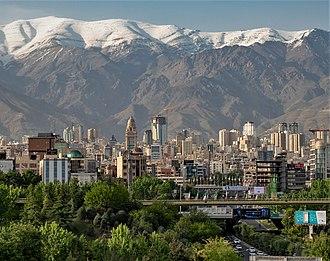Tehran’s Firm Reaction to UK’s Uranium Enrichment Concerns: Navigating a Complex Nuclear Dialogue
In a notable diplomatic exchange, Iran has formally addressed the United Kingdom’s recent criticisms concerning its uranium enrichment program, reigniting debates over nuclear policy and regional security. As international discussions intensify, Iranian authorities have articulated their stance clearly, emphasizing the peaceful nature of their nuclear activities while challenging what they perceive as politically driven accusations. This article explores Tehran’s response within the broader framework of UK-Iran relations and assesses how this dynamic might influence ongoing negotiations related to Iran’s nuclear ambitions.
Iran’s Defense of Its Nuclear Program Amidst UK Criticism
Responding directly to London’s apprehensions about uranium enrichment levels in Iran, Tehran has underscored its sovereign right to develop nuclear technology for non-military purposes. Iranian officials maintain that their activities align with the provisions set forth in the Joint Comprehensive Plan of Action (JCPOA), focusing on applications such as electricity generation and medical isotope production. They argue that the UK’s position is less about genuine security concerns and more an attempt to delegitimize Iran’s lawful scientific progress.
The Iranian government has highlighted several pillars underpinning its approach:
- Commitment to Transparency: Tehran pledges continued cooperation with the International Atomic Energy Agency (IAEA) by providing access and data necessary for verification.
- Sovereign Policy Autonomy: Officials reject external pressures perceived as coercive tactics aimed at curbing Iran’s technological development.
- Civilian Focus: The enrichment program is framed within efforts to advance national healthcare technologies and sustainable energy solutions benefiting millions across Iran.
This posture reflects Tehran’s delicate balancing act—asserting its rights under international law while attempting not to alienate global partners critical for economic relief amid sanctions. Upcoming diplomatic engagements are expected to further clarify these positions as both sides seek pathways toward de-escalation without compromising core interests.
The Broader Impact of UK-Iran Tensions on Global Nuclear Negotiations
The rising discord between London and Tehran carries significant consequences for global non-proliferation efforts. The UK’s firm rhetoric against Iran’s uranium enrichment risks hardening stances on both sides, potentially undermining years of painstaking diplomacy aimed at preventing nuclear escalation in a volatile region. Analysts warn that entrenched positions could stall or even reverse progress made since 2015 when the JCPOA was initially agreed upon.
Main factors exacerbating tensions include:
- Deteriorating Diplomatic Tone: Increasingly confrontational language from both governments complicates trust-building measures essential for negotiation success.
- Possibility of Enhanced Sanctions: The UK contemplates imposing stricter economic penalties which may deepen Iran’s isolation but also reduce incentives for compromise.
- Evolving Regional Alliances: Shifts involving Middle Eastern actors like Saudi Arabia or Turkey could influence negotiation dynamics either positively or negatively depending on geopolitical interests.
| Date | Description |
|---|---|
| 2015 | The JCPOA agreement signed by major world powers including Iran; |
| 2018 | The United States withdraws from JCPOA under new administration; |
| 2021 | Bilateral talks resume aiming at reviving compliance with JCPOA terms; | 2023-2024 | Toward Productive Engagement: Strategies for Rebuilding Dialogue Amid Rising Frictions

